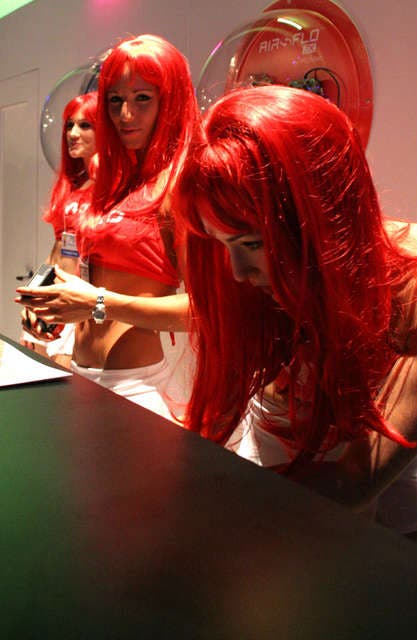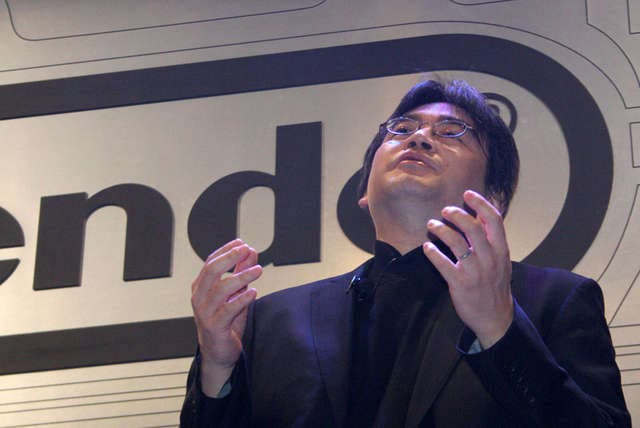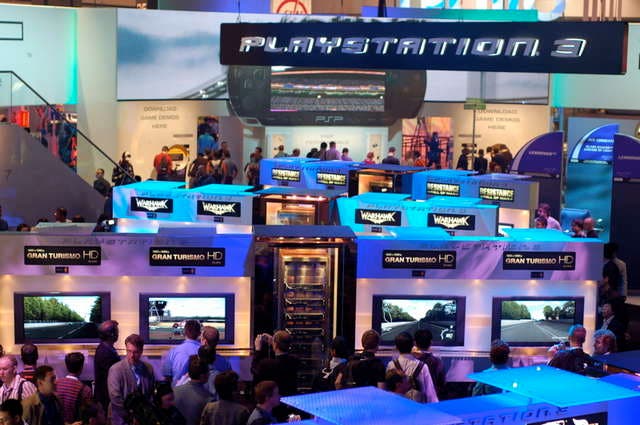Last Stop, E3
Reflecting on the end of the industry's greatest folly.
What a difference a week makes. Even as I wrote an editorial last week on the topic of the forthcoming Games Convention event in Leipzig, encouraging the industry to support it on its own merits rather than comparing it to the self-defeating concept of a "European E3", a vote was underway behind closed doors in the United States on whether E3 itself was to continue to exist as the industry's biggest annual event.
The results, I'm very reliably informed, were unanimous. The ESA's board members, representatives of the industry's top publishers, spoke with one voice - and E3 is no more. Bells ring out; ding, dong, the witch is dead!
Of course, we're left with the "E3 Media Festival" in July, which will still be held in Los Angeles - but while this may ultimately be a much more useful event than E3 ever was, attaching the name "Electronic Entertainment Expo" to it is nothing more than a branding exercise. E3 once rubbed shoulders with the likes of CES. Those days are now over.
It seems shocking for such an enormous, established event to disappear so suddenly from the calendar, and there's a sense that E3 has been struck down in its prime. After all, this year's event retained the signature noise and glitz of previous years - the halls were filled, the crowds were heaving, the sound was deafening and the food was poisonous. There were none of the external tell-tale signs of an event in trouble - dropping visitor numbers, or ominously empty spaces at the back of big halls. The lingering death which afflicted events like ECTS was nowhere to be seen.
Terminal Diagnosis

However, with the unquestionable benefit of 20:20 hindsight, it's clear that while it may have been in the prime of its life, E3 was not the victim of a tragic freak event which none could have foreseen. It may not have been a visible wasting disease, but the event has nonetheless been riddled with malignant issues for some years - and while it may be a shock to learn that the condition is terminal, it's not like we haven't noticed some of the symptoms before.
So what were those symptoms? Why has the industry suddenly abandoned the concept of E3, when only a few scant weeks ago top publishers were spending millions on the event?
At the heart of the problem lies the fundamental identity crisis that E3 has suffered for many years. In theory, this is a place for the industry to do business - for new software to be showcased, information to be exchanged, deals to be struck and evening after evening of networking events to be attended. In practice, the show is a vast, sprawling, noisy and expensive spectacle which looks nothing like a venue for business. Do 80,000 people really need to do business at a games industry trade show? Of course not - meaning that literally tens of thousands of the people at the show had no compelling reason to be there, and were essentially hardcore consumers who had found a way to blag themselves in.
Over the years, ironically, the focus of the show has shifted so that most stands and events cater not to those who actually have a reason to be there, but to the gamers who have opted to spend a fortune travelling to and buying a ticket for the event. That in itself is fine - or rather, would have been fine, if E3 had bitten the bullet and rebranded itself as a consumer event.
Identity Crisis

Instead, it continued to exist in limbo, failing to address the needs of either group. For consumers, it was strictly hardcore only, with huge costs and a large degree of blagging required to get in. For the industry, each unsteady stumble towards being a loud, overbearing consumer event made it increasingly less useful as a business venue.
After all, who can have a productive meeting on a show floor which is louder than many nightclubs? In fact, never mind meetings - from a media perspective, and in recent years the media has been a key raison d'etre of E3, the show was absolutely the worst environment in which to actually play new games. Noisy, sweaty, poorly lit and uncomfortable, it was as far as you can possibly imagine from being a good way to be introduced to a new piece of entertainment software. E3 game previews are frequently full of hilarious bloopers and misinterpretations not because the journalists are lazy, hung over or stupid, but because they're playing games on small screens with a myriad of coloured lights glaring on them, all the while standing up, being jostled by 20 other people, and totally unable to hear the sound in the game due to the noise on the surrounding booths.
Given this, is it any wonder that the cracks started to show in the E3 firmament this year? Speaking to the communications boss of one of the industry's top companies in private at the event, he revealed that his firm had opted not to unveil the bulk of its new software at the show, because it simply wasn't the right place to show it off in public for the first time. Publishers paid for E3 because it was a useful and flattering venue for new software - when the ESA allowed the event to spiral out of control such that it was no longer either of those things, it became nothing more than a useless and exhausting week of fruitless meetings and frustrating game demonstrations for publishers, developers and journalists alike.
Robbed of the new game unveilings that were its lifeblood, increasingly despised by the journalists who were meant to be covering it and equally unloved by publishers who saw more and more of their marketing budgets being poured into the event each year - and many of whom then felt the need to arrange separate events before or after the show so that people could actually see and play their games properly - E3 was, essentially, left friendless. Well, not strictly true - we have little doubt that the liggers who travelled to the show to collect bag after bag of worthless freebies and stand in hours-long queues for new games will miss the event, but if anything, the end of E3 will help to raise the profile of consumer events around the USA and elsewhere, so there'll still be plenty of places for them to go.
New Beginning

As for the new-look, much diminished E3 - smaller it may be, but sometimes small is beautiful. There's little doubt but that this new event will be a far less crucial part of the industry calendar than it was before - but what it might be, instead, is a genuine opportunity for new games to be previewed in an appropriate setting, for business to take place, and for work to get done. Publishers will spend less money on the event; journalists will get more done; and for consumers, the reduction in meaningless hype and the upswing in the accuracy and intelligence of reporting from the event should make everyone into a winner.
Of course, there are other possibilities outside of that optimistic forecast. On the other side of the coin, we could see publishers taking the opportunity to ignore combined events completely and try to drag the media and their channel partners around the world to a host of disparate, single publisher hosted events - a strategy already employed by major companies like EA and Microsoft. For this reason, we sincerely hope that the publishing community wasn't just paying lip service when it voted unanimously for the all-new shrunk-to-fit E3...
So, farewell then, Electronic Entertainment Expo. Without a doubt, this week will see nostalgia overflowing for the past decade and a half of annual pilgrimages to the filth and decadence of the City of Angels - but on balance, we suspect that few tears will be shed for the passing of a show which despite its stature, was useful to few and loved by even fewer.

